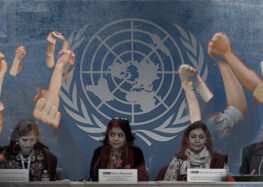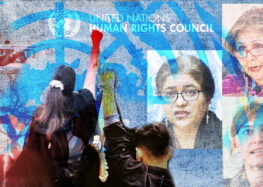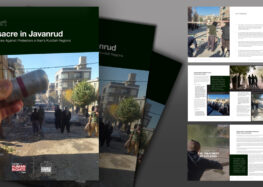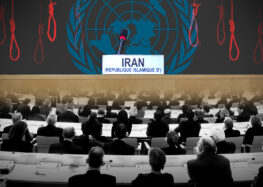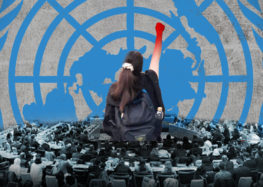Iran Should Stop Persecuting BBC Journalists and Threatening Their Families
Ongoing harassment of BBC Persian staff continues despite repeated UN criticism
March 12, 2017—The UN should take immediate action on an appeal by the British Broadcasting Service (BBC) urging the Human Rights Council to protect journalists from an escalating campaign of intimidation and harassment by Iranian security forces.
“The UN should act forcefully on this appeal to protect the rights of Iranian journalists and their families who have been targeted by the state’s security establishment,” said Hadi Ghaemi, executive director of the Center for Human Rights in Iran (CHRI).
“The UN has repeatedly criticized the Iranian authorities’ campaign of intimidation against BBC Persian, and still it continues,” said Ghaemi.
“Threatening journalists and their families is nothing short of thuggery and the international community should condemn it as such,” he added.
In a statement, BBC Director General Tony Hall said the public service broadcaster had taken the unprecedented step because its own attempts to persuade the Iranian government to cease its harassment campaign had been “completely ignored.”
“In fact, during the past nine years, the collective punishment of BBC Persian Service journalists and their families has worsened,” added Hall.
In a statement that did not address the BBC’s complaints, Mohammad Javad Larijani, the secretary of Iran’s High Council for Human Rights, accused BBC Persian of trying to overthrow the Islamic Republic.
BBC Persian “has always focused on striking Iran,” he said, citing the 1953 coup d’état of Iran’s democratically elected government.
It’s unclear whether Larijani is aware of the fact that BBC Persian was launched in 2009.
In October 2017, the BBC World Service urged the UN to investigate a court order and injunction by Iran’s judiciary freezing the assets of 152 BBC Persian staff, current and former, for allegedly engaging in “conspiracy against national security” in Iran and abroad.
The Iranian judiciary had attempted to create a criminal record for the BBC staff members in absentia, accusing them of “collaboration and conspiracy to commit crimes against national security.”
There is no news about the result of Iran’s investigation, but the BBC has noted that the state’s persecution campaign has continued unabated since 2009, when the BBC Persian satellite service was officially launched amid widespread protests against the results of Iran’s disputed presidential election that year.
The BBC says family members of its Persian-language service have been arbitrarily arrested and some elderly members have been interrogated. Staff members have also been the subjects of smear campaigns and their personal online accounts have been hacked.
The intimidation campaign has become so severe that staff members of the BBC have been forced to miss the funerals of loved ones in Iran, fearing arrests by security forces should they return to their country of birth.
On March 12, BBC Persian journalist Kasra Nouri reported “more than 30 staff have lost parents and been unable to say goodbye in the past decade.”
These events were documented in the report by the former UN special rapporteur on the situation of human rights in the Islamic Republic of Iran, Asma Jahangir (now deceased), which was published in March 2018.
In October 2017, the UN’s Special Procedure mandate holders issued a statement calling on Iran “to cease all legal action against the staff and their families, and to cease the use of repressive legislation against independent journalism.”
“The Iranian authorities appear to regard any affiliation with the BBC as a crime,” said David Kaye, special rapporteur on freedom of expression, and Jahangir.
“We urge the Iranian authorities to cease all legal action against BBC Persian staff and their families, and to cease the use of repressive legislation against independent journalism, whether affiliated to BBC or not,” the Special Rapporteurs said
CHRI has called on governments around the world to engage Iranian officials on their country’s deteriorating human rights record.
“The longer the international community is silent on Iran’s human rights abuses, the more emboldened and powerful rights violators inside the country become” said Ghaemi.

